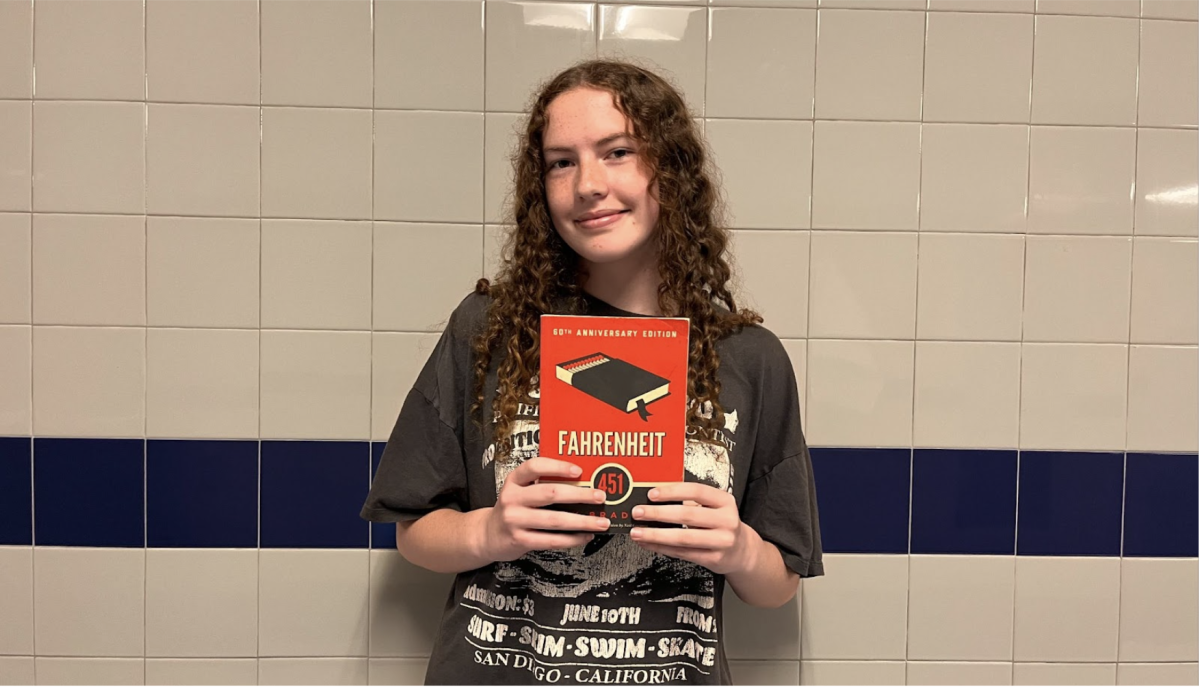There exists a dark world in which books are prohibited. Any and all books are required to be burned, or else citizens face extreme consequences. Firefighters don’t put out fires in this society; they start them. This is what society looks like in Ray Bradbury’s Fahrenheit 451.
This year, all sophomores are required to read Fahrenheit 451. Throughout the process of reading and analyzing Fahrenheit, several sophomore students have formed varying opinions on topics presented throughout the novel.
“I just think more about what I see online and think about current book bannings that you see all over the internet and just makes me think about how that’s affecting our daily lives and how literature can represent real life situations,” Katherine Heilman (10) said.
The online world has become increasingly advanced. The invention of Artificial Intelligence (AI) has recently improved tremendously. This has resulted in better access and easier use, but has also resulted in the obstruction of trustworthy knowledge and information online.
“I think it’s kind of a scary thing because you can make anything out of nothing, like deep fakes and whatnot, but I also think it can be used for good. It can be used to advance technology and medicine,” Lydia Murriner (10) said.
AI has been increasingly used on several different social media platforms recently, further allowing misinformation to be spread. AI has also increased the production of personalized services and advertisements.
“I think AI has increased technology because people use it to create new things, documents, and stuff. Fahrenheit 451 has changed my perspective on devices because it shows how the government is using it and shows what they’re doing to us,” Knox Duke (10) said.
Social media platforms utilize AI to try to grab the attention of consumers through complex systems by analyzing the user’s behavior on the app.
“They’re sucked into social media so much that they just agree with what they see and keep going. It’s easier to just believe instead of spending time researching,” Owen Uhl (10) said.
Social media platforms have become a black hole for the attention of viewers. The algorithm pulls them in and aims to keep them engaged for long periods of time. This excess time spent can result in the viewing of misinformation, but the algorithm keeps them hooked.
Fahrenheit 451 discusses heavy topics, including the idea of knowledge suppression in oppressive governments. It has sparked ideas and opinions on how some contemporary societies live.
“The book made me more aware of the dangers of social media and made me consider the possibilities of book burning in our time today,” Uhl said.
While discussing and analyzing these topics in classrooms, students have become informed about how these issues are presented and affect the real world in the present day.
“I think it’s made me see a lot of things that we didn’t see originally, like a lot of book banning today. We don’t see them originally but once we get exposed to things like Fahrenheit, it makes us see the world differently,” Heilman said.





